Projects/Fairs
Arteba | Stage Section – Booth B3 | Buenos Aires, Argentina
_VIGILGONZALES is pleased to announce its first participation in arteBA'22 in the Stage section (Booth B3), at the international fair of Buenos Aires to be held from October 7-9 at Costa Salguero.
On this occasion we will present an exhibition project whose axes gravitate on the themes of different struggles both of women's rights, vindication of indigenous peoples, mobilization and decolonization through the works of Alfredo Marquez (Lima, 1963), Natalia Iguiñiz Boggio (Lima, 1973), Jose Luis Martinat (Lima, and Fernando Nureña (Lima, 1993).
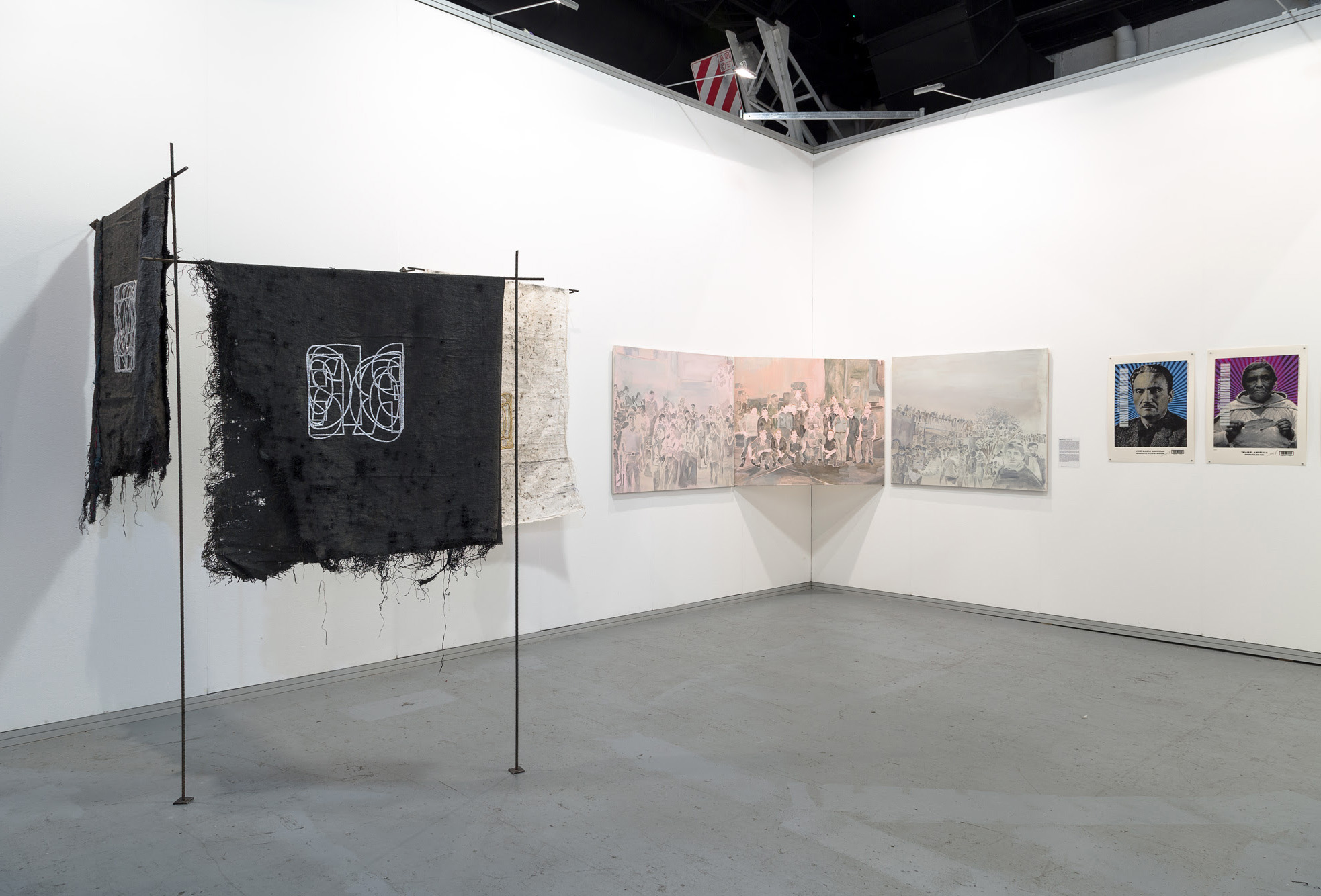
The work of the artists to be presented goes beyond a transcendence in the aesthetic potential but discusses and dialogues with the political field and social action. This performative act is reiterated as reflection and expiation of existence, revealing the transforming power of art.
Natalia Iguiñiz addresses in her work issues such as the violation, exploitation and violation of human rights. She places special emphasis on the violations of women's bodies in a macho, patriarchal and colonial society, tracing links between political violence and patriarchal power. For this occasion we will also present her most recent series Dejo este cuerpo aquí, in which the artist creates an installation with pieces of cardboard (collected and recycled from family consumption) that were silkscreened with three parts of a woman's body and accompanied by phrases taken from The Cancer Diaries by Audré Lorde.
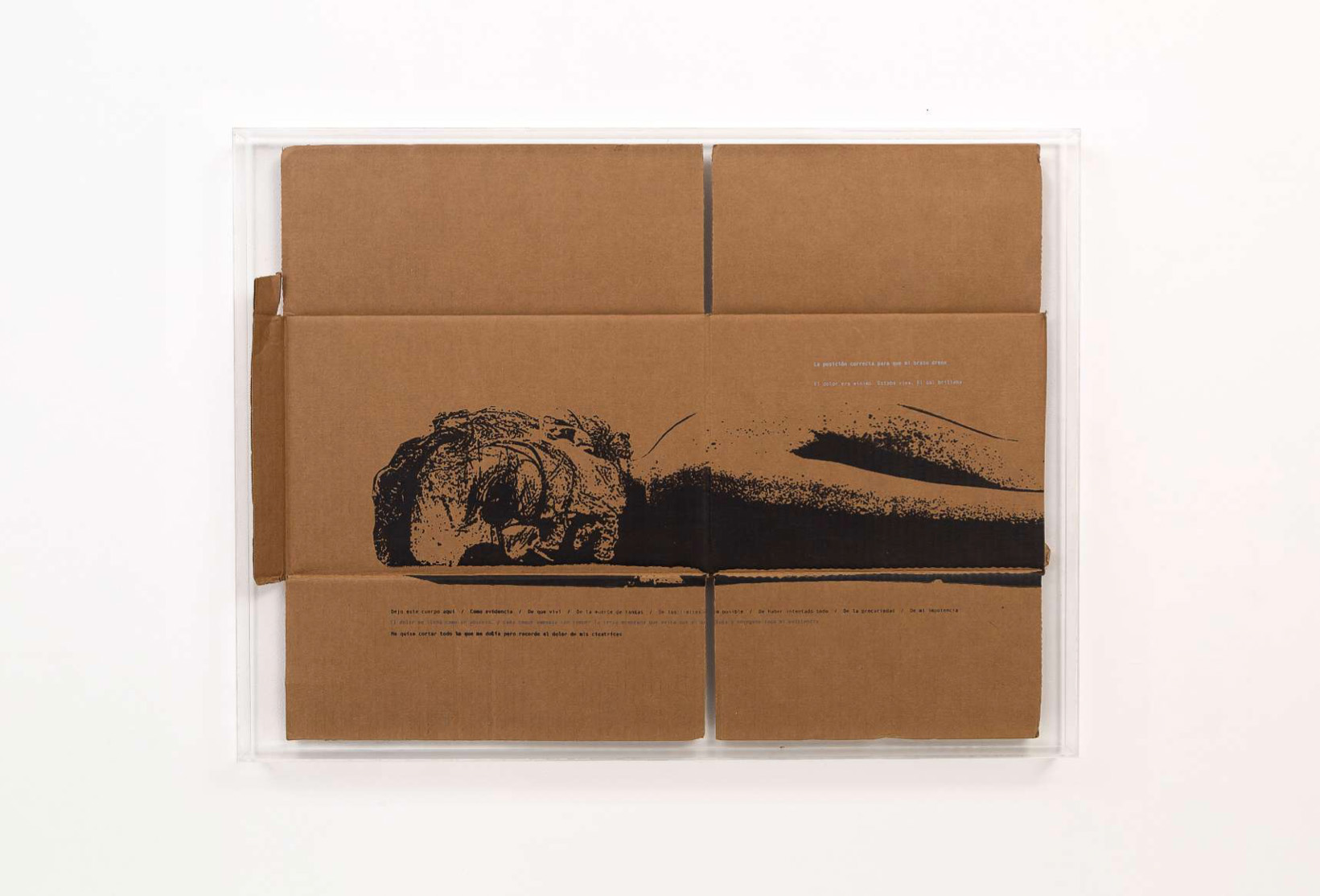
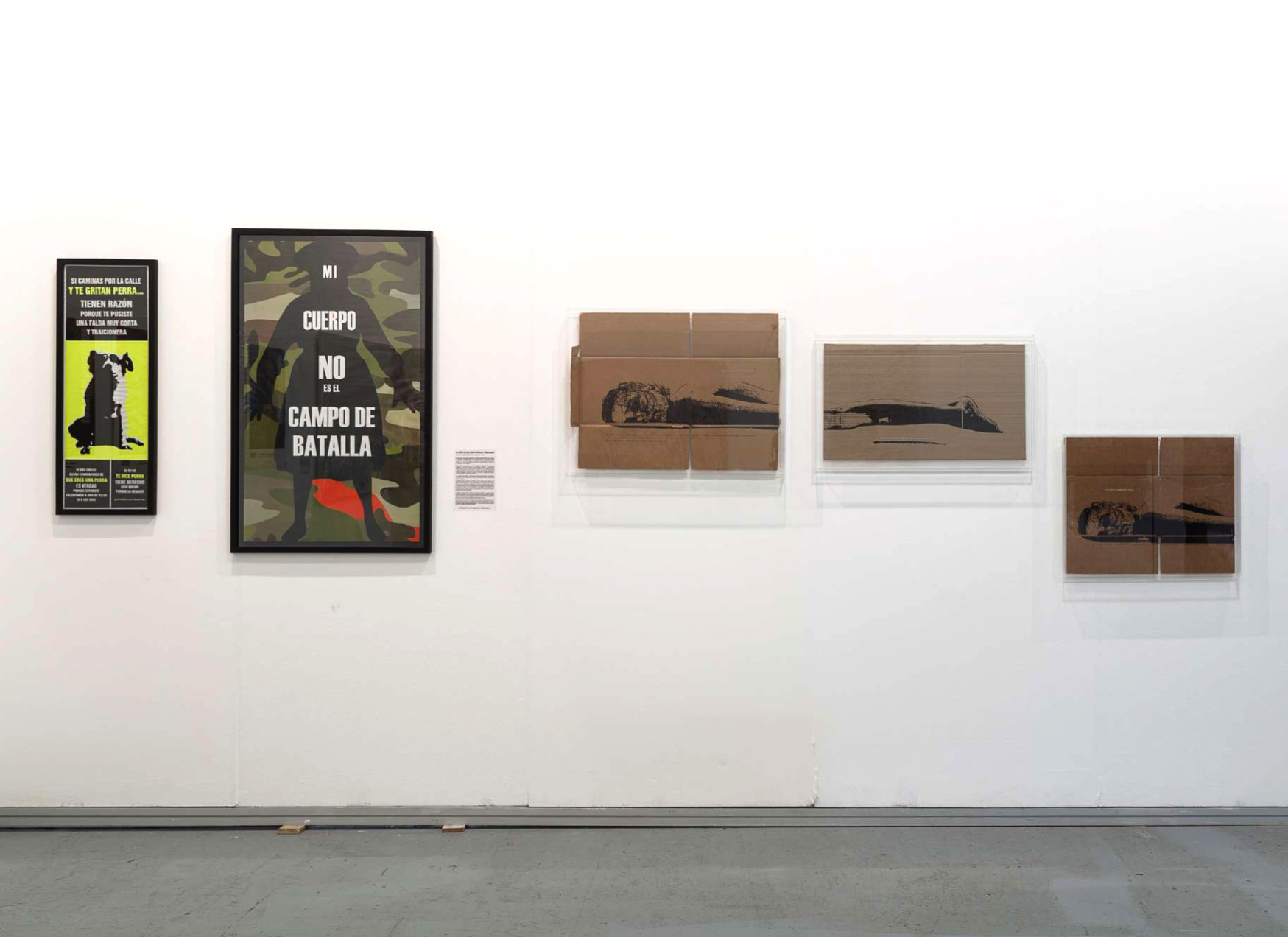
Belonging to this same generation, Alfredo Márquez develops a body of work where his social concerns make him reflect on the vindication of social struggles and leaders of revolution that are still valid today, and for the first time we show the Contemporary POPular Symbolic of Peru, a series that brings together characters that have defined a collective contemporaneity due to their actions, thought or presence. The influence of these characters has also contributed to the construction of Latin American imaginaries by occupying and moving between spaces of thought and debate that are not limited to national borders but unite the global south. Each image shows a character centered on the irradiation of his or her own aura and performs a series of images.
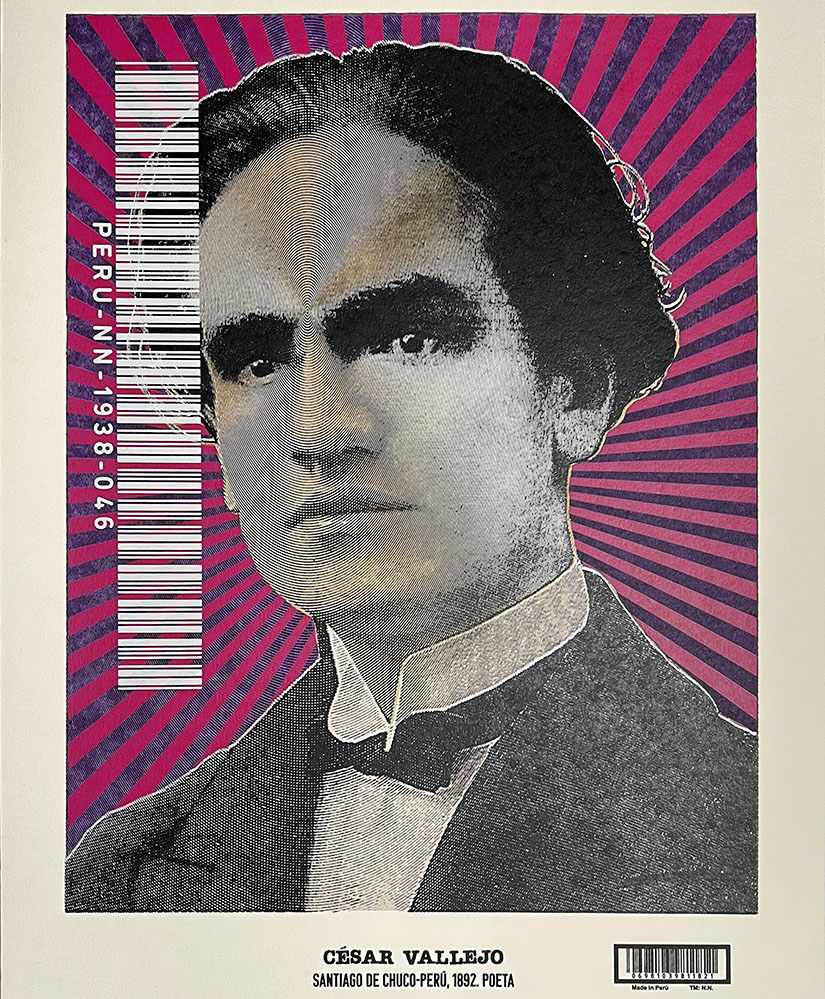
Fernando Nureña, through the revision of archives, constructs images that represent specific moments in the history of Peru charged with social content. In this experimentation and variation of the support, he moves from an archival object to a painting that reinterprets and offers the possibility of new reflections. This same process is carried out by Martinat through his works where he criticizes specific moments of Peruvian history and its materiality. He eliminates the original meaning of the work and creates the possibility of new associations and interpretations.
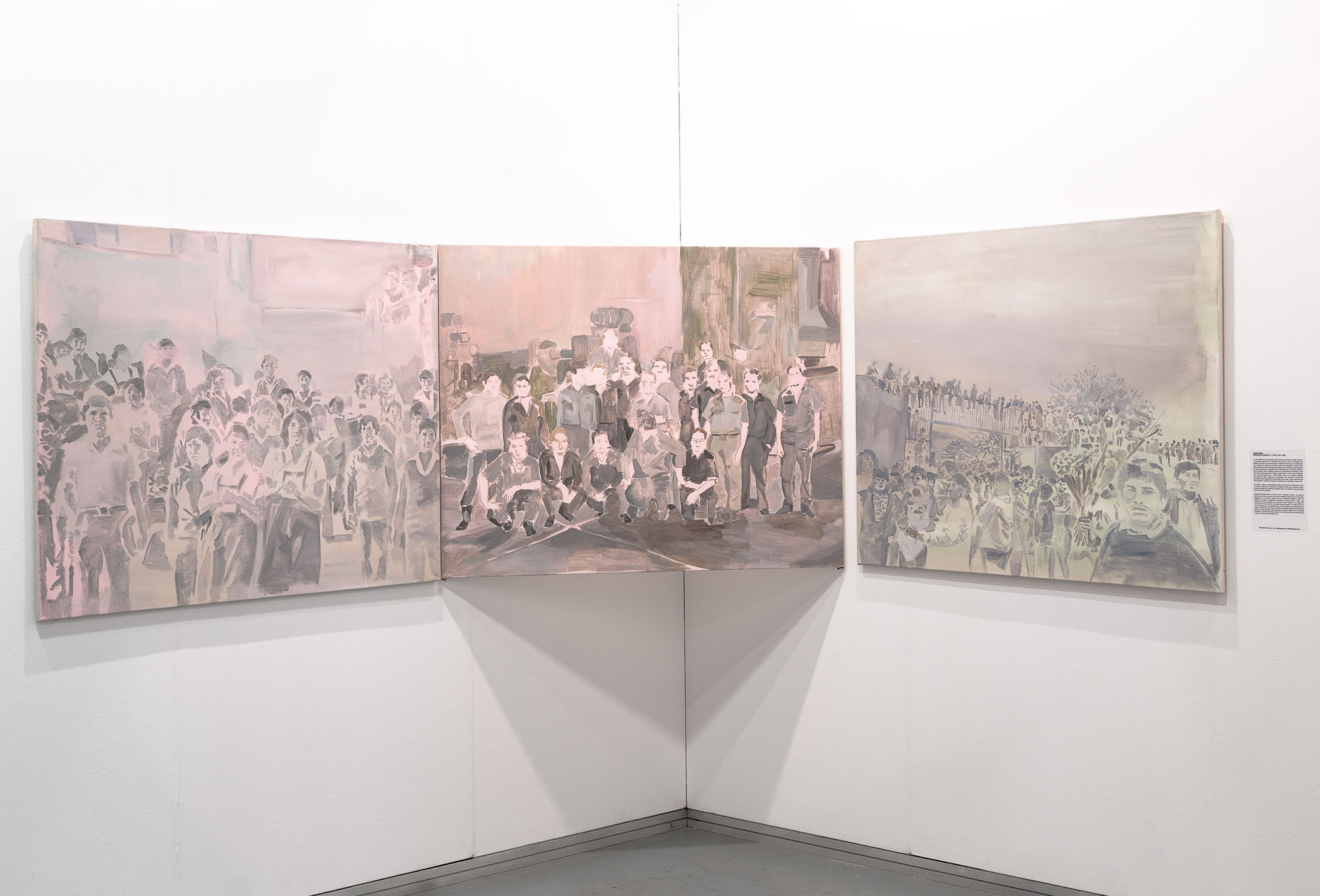
José Luis Martinat's project Vencidos seeks, through the creation of embroidered pieces, to question political, economic and religious beliefs about a capitalist prophecy of a better future. It uses the technique of embroidery, understood as an ancestral tradition, made by artisans who have appropriated and adapted traditional techniques brought with the introduction of the baroque to America. These embroideries capture a compilation of political speeches and slogans to religious propaganda on the support of different industrial fabrics that have been reused in different ways in mining, agriculture and construction.
The material with which Martinat works, often film, photographs, artwork or sound, is subsequently revealed in a new formation, or “deformation,” that removes the original meaning of the work and creates the possibility of new associations and interpretations. This working process reflects his interest in images as purely artificial constructs and how reality is experienced through them.
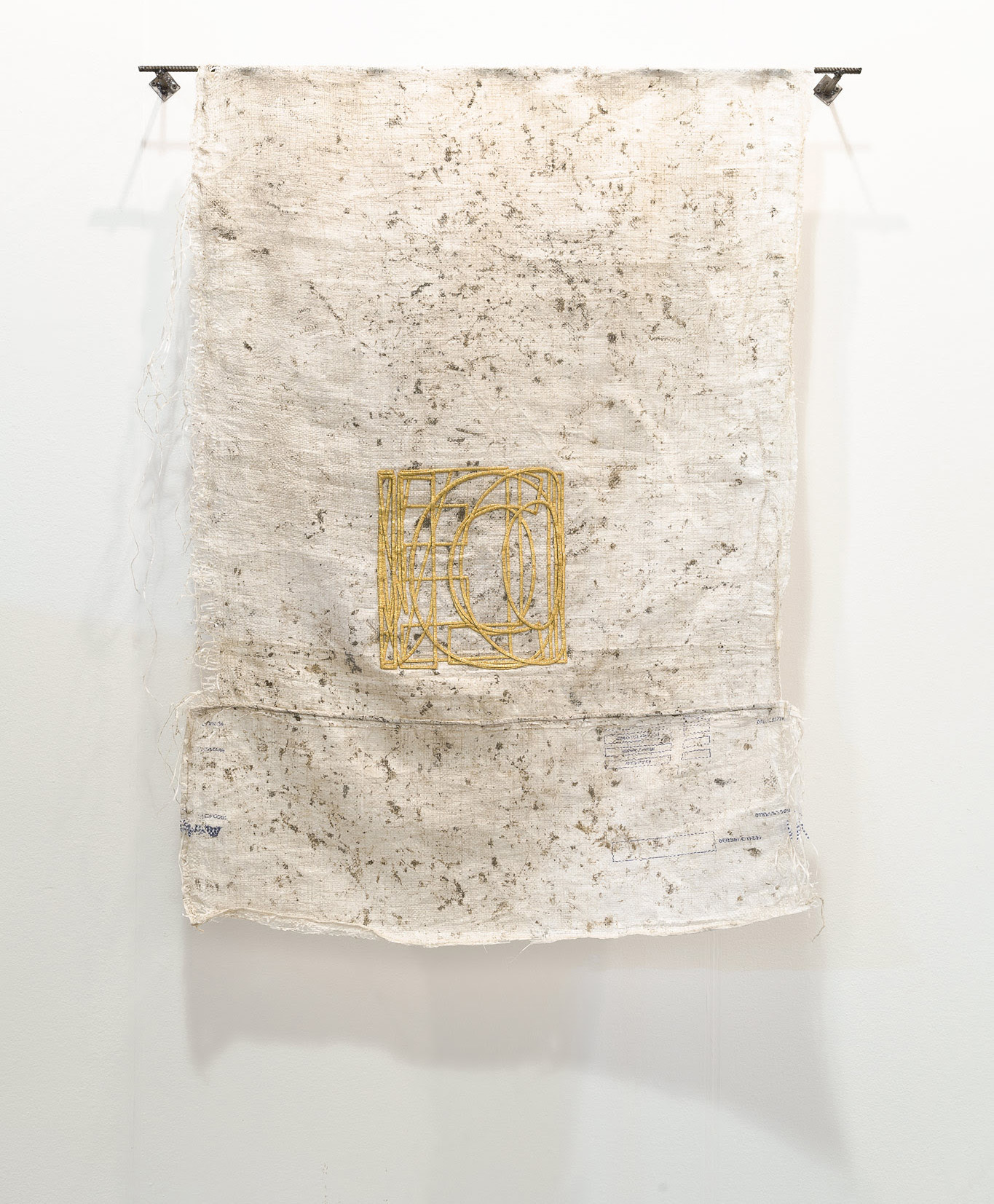
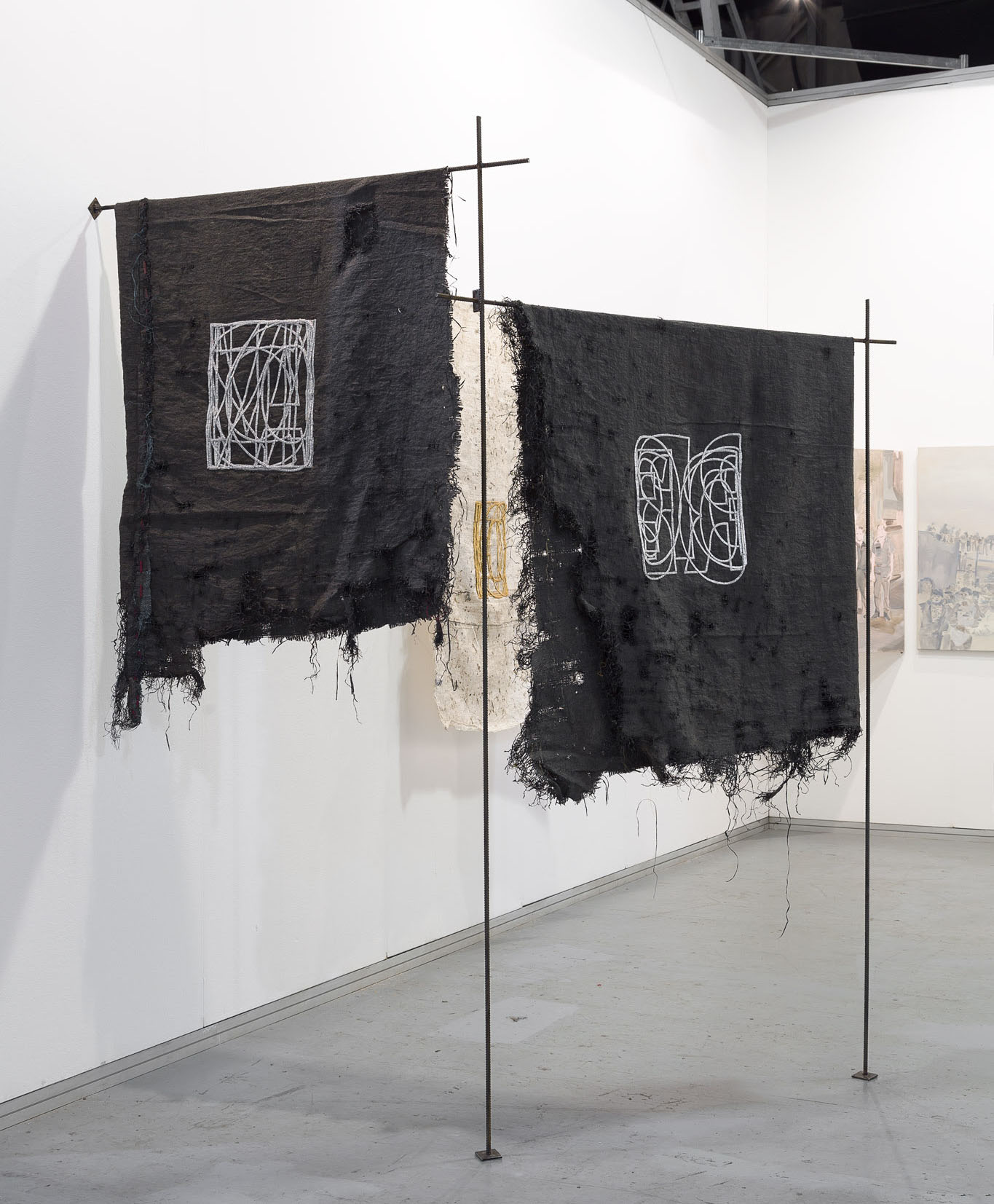
Artists:
Alfredo Marquez
Natalia Iguiñiz
José Luis Martinat
Fernando Nureña